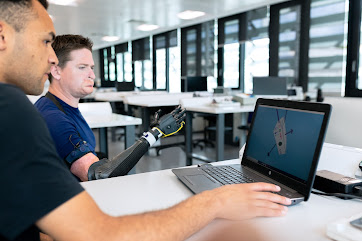Folding@home: How Your Computer Can Help Fight Diseases
Folding@home is a distributed computing project that uses the processing power of volunteers' computers to simulate protein folding and other molecular dynamics. This project is run by the Pande Lab at Stanford University, and is one of the largest distributed computing networks in the world. The goal of Folding@home is to understand how proteins fold, misfold, and interact with other molecules, in order to develop new treatments for diseases such as Alzheimer's, cancer, and COVID-19.
How Does Folding@home Work?
Folding@home works by distributing small units of work, called work units, to volunteers' computers. Each work unit represents a small part of a larger simulation, and is designed to be completed in a relatively short amount of time. When a volunteer's computer completes a work unit, it sends the results back to the Folding@home servers, which then combine the results with other work units to create a larger simulation.
The simulations created by Folding@home are used to study the way that proteins fold and interact with other molecules. Proteins are the workhorses of the human body, and are responsible for many of the chemical reactions and processes that keep us alive. However, proteins are also involved in many diseases, such as Alzheimer's, cancer, and COVID-19. By studying how proteins fold and interact, scientists can develop new treatments and therapies that target specific proteins and diseases.
Why is Folding@home Important?
Folding@home is important because it allows scientists to study complex biological systems that would otherwise be impossible to study. By simulating the way that proteins fold and interact, scientists can gain insight into the underlying mechanisms of many diseases, and develop new treatments and therapies that target specific proteins and pathways.
Folding@home has been particularly important in the fight against COVID-19. In early 2020, Folding@home launched a project to study the SARS-CoV-2 virus, which causes COVID-19. By simulating the way that the virus interacts with human cells, scientists were able to identify potential drug targets that could be used to develop new treatments for the disease. Folding@home has since continued to study the virus, and has contributed to several important scientific publications on COVID-19.
How Can You Get Involved in Folding@home?
Getting involved in Folding@home is easy! All you need is a computer with an internet connection, and you can download the Folding@home software from their website. The software is available for Windows, Mac, and Linux, and runs in the background while you use your computer. You can choose how much of your computer's processing power you want to dedicate to Folding@home, and you can start and stop the program at any time.
The Linus Tech Tips Folding Team is a group of Folding@home volunteers who have joined together to contribute their processing power to the project. The team is named after the popular technology YouTube channel and is one of the largest Folding@home teams in the world. The Linus Tech Tips Folding Team is always looking for new members to join their ranks and help contribute to important scientific research. If you're interested in joining the team, all you need to do is download the Folding@home software and enter the team number (223518) when prompted. By joining the Linus Tech Tips Folding Team, you can help make a difference in the fight against diseases such as Alzheimer's, cancer, and COVID-19, while also being part of a friendly and supportive community of like-minded individuals.
My name is Spec and I own a small media company called OnTheSpectrum Media. I'm autistic and I create content along with a few others who are also neurodivergent. If you would like to see some of our human-generated content feel free to have a look at the links below.
https://www.reddit.com/r/GPTWriting/



Comments
Post a Comment